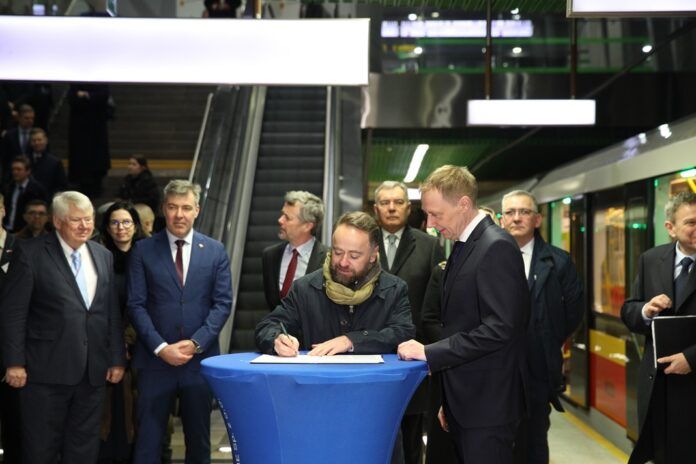
Danfoss has signed a Memorandum of Understanding (MoU) together with the Municipality of Warsaw, the Royal Danish Embassy in Poland, Metro Warszawskie and Rambøll Group with the aim of making the Polish capital more sustainable.
The first step in the partnership, consisting of public and private entities, is set to focus on exploring the possibility of reusing excess heat from the Warsaw Metro system to heat private homes and buildings, a statement said. A feasibility study will be carried out with funds from The Export and Investment Fund of Denmark’s Green Accelerator Program being made available to the City of Warsaw.
Warsaw is a member city of the European Commission’s Cities Mission, a project aiming to achieve 100 climate neutral and smart cities in the EU by 2030, and this MoU is an important step towards achieving that, it cited.
His Majesty King Frederik X was present at the signing ceremony at the Naradowy Metro Station in central Warsaw which is part of the official program of His Majesty, the King’s visit to Poland.
A statement reported that excess heat was ‘the world’s largest untapped source of energy’, and it can be found throughout any city. Every time an engine runs, heat is generated and there are currently very few initiatives which reuse this wasted form of energy, it was noted. Industries, metro systems, supermarkets, data centres, wastewater plants, and hydrogen electrolysis all produce significant amounts of excess heat which could be captured and reused.
It also said that the accessible excess heat in Warsaw alone can cover the heating demand of at least 275,000 people in Poland.
Adam Jędrzejczak, president, East European Region, Danfoss, said: “The partnership is a great demonstration of what we can achieve when organizations work together, and the Memorandum of Understanding is an important first step to reuse the vast amounts of excess heat available in Warsaw and beyond.
“Rather than simply letting heat dissipate into thin air, we are taking active steps to capture and re-use it and paving the way for fully decarbonized heating in cities like Warsaw. And it isn’t only in the Warsaw Metro system; there is vast potential in reusing heat from wastewater facilities, industrial clusters, and data centres in major cities all over Europe. Excess heat can become a vital source of green energy and help accelerate the transition to renewables.”
Michał Olszewski, Deputy Mayor of the City of Warsaw, added: “Every day we look for solutions to make our city even greener. All measures aimed at reducing CO2 emissions in the Capital are positively received by the city authorities. Thanks to this partnership, we will benefit from modern technologies that are already proven.”
